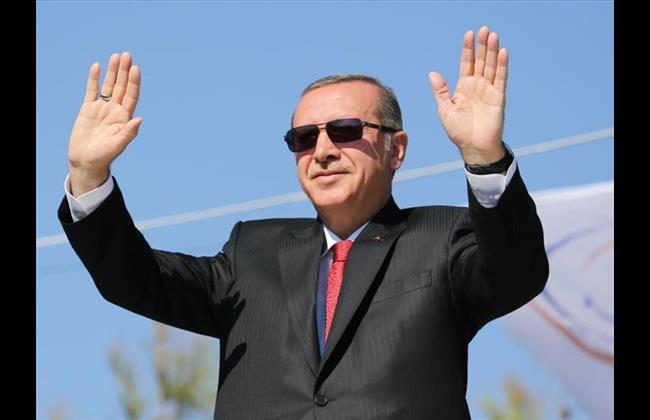The Mideast needs Saudi-American-Turkish cooperation
Jamal Khashoggi/Al Arabiya
Wednesday, 4 February 2015
State policies change with the changes in leadership and circumstances, or when reaching deadlock. All of this has happened to Saudi foreign policy and therefore it is logical to expect some changes on this front, but the questions are where, how and when? And it is not just Saudi policy that has found itself deadlocked in the region: Even U.S. foreign policy is in the same situation.
This is why talking about the two countries’ differences in the region seems futile, but we saw none of the differences discussed during the recent visit by a large bipartisan U.S. delegation headed by President Obama to Saudi Arabia to offer condolences over the death of late King Abdullah.
The delegation was not limited to members of Obama’s administration. Obama gathered friends of Saudi Arabia as well as his Republican enemies in an exceptional mission. It was an opportunity to renew the close strategic ties with the new king, Salman bin Abdul Aziz. A long meeting was held with the new Saudi leadership, gathering for the first time three generations – the founding generation (the king), the transitional-phase generation (Crown Prince Muqrin), and the future generation (Deputy Crown Prince Mohammed bin Nayef).
Obama and the world are dealing with Saudi Arabia as a constant, solid pillar in a changing and even collapsing region. This is the only fact that all agree on, but things become blurry when we ask: “How do we stop the collapse of the Middle East?” This question was surely asked during the meeting, but we do not know what or where to begin. Is it with the Islamic State of Iraq and Syria (ISIS)? Is it with the war in Syria? Or is it Yemen, which is in Saudi Arabia’s backyard?
Trilateral cooperation
Previous policies, be it American or Saudi, have failed to prevent the collapse. In addition, other Arab countries are about to join the list of failed states. Therefore, we should develop new policies, but this will not happen without recognizing that cooperation between the only three countries that are able to stop the collapse – Saudi Arabia, Turkey and the United States – has not been good, even absent, not to mention the problems between them.
The United States is not a regional country but has a strong presence with its military bases, fleets, influence, concerns and interests. Saudi-American ties were not at their best over the Arab Spring. The same applies to Riyadh and Ankara, as well as to Ankara and Washington. What we see and live now are the consequences of this poor coordination.
Saudi Arabia must go back to its “containment policy,” which led the country to succeed in several crises. The Taef Agreement in 1989 is proof of that, as it ended the Lebanese civil war. Quiet Saudi diplomacy gathered all Lebanese parties and their allies; even those who were against Saudi Arabia were invited. All were able to freely negotiate. Saudi Foreign Minister Prince Saud al-Faisal, and then-head of intelligence Prince Turki al-Faisal, sought solutions that suited everyone, away from the media spotlight. They succeeded in achieving a peace deal that is still holding in Lebanon, despite the Syrian war and Hezbollah’s involvement in it.
The United States needs to prioritize the Middle East again. Its hesitation to intervene in Syria, and to overthrow a regime that it described on more than one occasion as lacking legitimacy, has led to the growth of ISIS and its transformation from a terrorist organization to a state.
“The United States’ hesitation to intervene in Syria and overthrow a regime that it described on more than one occasion as lacking legitimacy has led to the growth of ISIS.”
Jamal Khashoggi
What also helped ISIS was the U.S. rush to withdraw from Iraq and leave a sectarian prime minister who destroyed the country with the help of Iran.
Obama withdrew his soldiers from Iraq and Afghanistan without alternative plans, and remained committed to not getting involved in a new conflict. Nevertheless, he is demanded, even on the international level, to go back there, especially since the threat of terrorism has gone beyond the Middle East to Europe and the rest of the world. Ignoring a crisis will only make it worse.
Turkey should consider that the strategic ties with Saudi Arabia are more important than supporting the “Muslim Brotherhood.” This regional collapse is more than just the loss of an allied party; it is the collapse of its neighboring countries and it is no longer a secret that this fever has reached Turkey in a violent form of internal divisions.
Bleak prospects
“There is no magic solution to any of these issues. We should expect the worst. We need a containment policy, not an exclusionary one.”
If the war on ISIS needs 10 years, as the Saudi foreign minister said in September, how long will it take to rebuild the crumbling Arab world? Another 10 years, even more. There is no good news there. Even the recent victories in Iraq against ISIS, which the world has celebrated, were stained by the killing of Sunni civilians and the raping of women. The cycle of hatred and violence is not limited to ISIS.
It is a rampant disease that will take years to heal and might require further division in Iraq. How will the war in Syria come to an end? Yemen is important because it is Saudi Arabia’s neighbor and is about to enter into a civil war that will be devastating. Libya is already suffering from civil war.
Even the situation in Egypt does not bode well. Stifling criticism of the government has encroached on freedoms. The deaths of Egyptians every day in order to protect the regime has become ordinary news. It has made national reconciliation harder. This is not what Saudi Arabia and the United States want for Egypt.
There is no magic solution to any of these issues. We should expect the worst. We need a containment policy, not an exclusionary one. We need to uphold the values of human rights and encourage the world to participate. Stopping weapons supplies would be a good idea, in addition to a joint Saudi-American-Turkish operations room that would serve as a regional fire extinguisher.



















